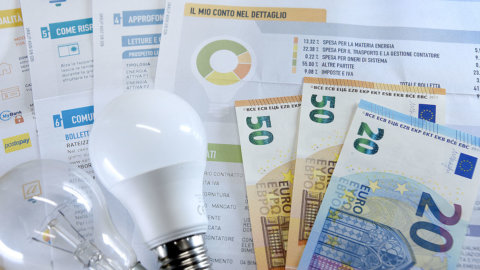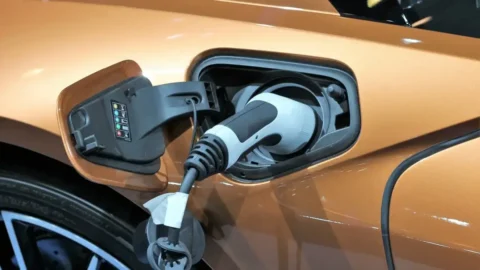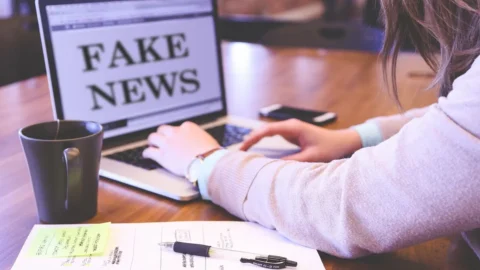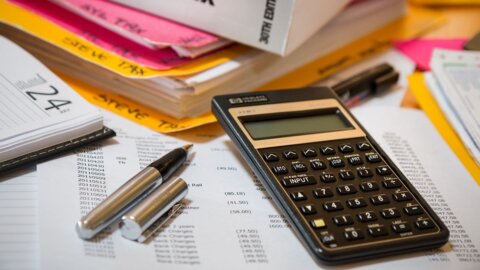It is useless to hide it: the "door to door" contract for electricity, gas does not pay. Perhaps the seller pays, but not the citizen-consumer. Never. Even when, which is rare, whoever rings the bell explains correctly (it's really rare) what he proposes. Which, after all, is always the same thing: he wants us to change the contract, especially if we still have the "greater protection", i.e. those contracts that change only the name but not the substance to the old administered tariffs which in theory were supposed to be gone for a decade. Is it necessary to switch to the "free market"? No. Is it possible? Yes of course. Is it worth it? Not always. With the "door to door" practically never.
First warning: whoever rings the bell in most cases deceives us already from the premises. “I'm here on behalf of your manager who warned the administrator” (that's not true). “It's for a check on the clash he's entitled to”, “it's a check on the correct functioning of the meter with respect to his contract. Show me so we can see” and so on. Either we resist the insistence and decline or we fall prey and victim of what is overwhelming most cases it is a trap.
But who is really the "door to door" salesman? Sometimes (if it's okay) he's actually a appointee of our current manager, whose visit should be anyway preceded by a reasoned notice sent to us by ordinary mail or by e-mail, or perhaps with a flyer hanging in the entrance hall and addressed to all the condominiums. More often it is the seller who works on commission, perhaps on his own. Result: if all goes well, we end up with a slightly more expensive contract still in the name of our current supplier, whose "agent" has led us to abandon the more protected contracts to switch to the so-called free market. The argument to convince even if we are not completely fasting from the regulations and ask for clarifications? “The greater protection is about to end. His contract will have to be revoked. You should accept the offer immediately”. Someone even fears a possible interruption of the supply.
Is that it? Is there really any imminent risk? No. Is it better to switch immediately to the free market for electricity and gas contracts? Maybe yes, but not like this. Let's see why, and how should we behave.
LAME LIBERALIZATION
From one postponement to another. The "free everyone" of energy contracts should have been done for a few years. Here is yet another slip. With an amendment to the latest "milleproroghe" decree, the release of the electricity market is postponed for a further year, to July 2020 from 2019 July 2019 (the penultimate extension, to July XNUMX, was ordered by the Gentiloni government). The reason is always the same: the supplier market does not yet have fully reliable rules, the procedures are uncertain, the protections for those who are forced to abandon the contracts inherited from the administered tariffs are fleeting and still smoky. The risk is precisely to pay more the vast majority of cases.
A scenario well summarized by the new president of the Energy Authority, Stefano Besseghini, in the parliamentary hearing preparatory to his office: it is necessary to "guarantee the smoothing out of information asymmetries, it is necessary to ensure that decisions are aware and possible, in a clarity of relationship between cost and benefit that is transparent to the user, and the user is not always sufficiently competent”. In short, if the pirates of the market are taking advantage of it, it is also and above all because the institutions have not yet fully played their part in a process wanted and directly imposed by the pro-liberalization policies of the European Union, ready here too to saddle us with yet another infringement procedure, if we don't act and above all if we don't do things right, freeing up the market but adequately protecting citizens.
THE REGULATION DOESN'T HELP US
Is it more up to the Authority to impose correctness by passing more stringent rules, or to the Government and Parliament to act more effectively on the legislative front? And the large operators, who also suffer from the chaos and improprieties of a market in which these practices are the result of a questionable policy of procurement contracts in sales and in contacts with customers, could not (or should) keep their promises to repair? The world of analysts spurs (here's what it says, for example, Energy nomenclature). But in the meantime the classic Italian rebound continues to hold the court.
WHAT SHOULD BE DONE
What can the citizen-consumer do in the meantime? In the meantime, let's repeat the first tip: never accept door-to-door offers. the more than concrete risk is not worth the uncertain benefit. It must be said that unfortunately the unwelcome challenge very often does not stop there. The seller insists, comes back in the following days, sometimes even assumes threatening manners and tones. He would really do anything to get the commission guaranteed by our change of contract. His behavior not only goes beyond the principles of correctness, but more often than you think (if it hasn't happened to you, ask your family or friends) it sets up a real aggressive practice. It even happens that following the unwelcome visit we find ourselves with a different contract against our will: we simply made the mistake of providing the pedantic seller with the identifiers of our utilities.
REPORT, SO
Even in the simple case of harassing insistence it is better, for your good and for the common good, to contact the competent authorities. The best way is to report with a complaint at the police station, or if you live in a smaller town at the Carabinieri station. A trace for the text of the complaint found here, drawn up on the basis of a complaint actually presented in Rome in recent months, following which the heads of the area police station, sensitive to repeated reports and complaints, ordered random surveillance in the neighborhood to intercept and prosecute the perpetrators of aggressive practices .
REALLY SAVE
Premise: i margins to save something for electricity and gas they are really narrow. Blame the structure of the bills, characterized by a strong prevalence (over 50%) of items that do not concern the components on which the operator can actually offer better conditions, ie the cost of the raw material and its services. All the rest is represented by regulated costs, such as those of distribution and metering, but above all by the greed of the Italian tax authorities. Reaching 5% of total savings is already difficult. However, especially for those who consume a lot of electricity or gas, the game of anticipating the choice on the market that sooner or later we would be forced to make, can be worth the challenge.
the most reliable official tool to guide us in market choices and the one made available directly by the Energy Authority with its "FindOffers". It is a well done telematics application, updated regularly.
Before accessing the portal obtain the necessary data, which you will find (as imposed on operators) right in your bill: periodic consumption and their breakdown by time slots and by day of the week.
WEB TIPS
A less drastic solution could be to take a look at the Web site of our current electricity or gas supplier in the meantime, choosing one of the proposals which provide for the management of the service only via the Web and e-mail, with direct debit or automatic payment by credit card. credit, without direct contact with the staff and with the delivery of the documentation, including bills, only by e-mail. These are contractual schemes that in many cases reproduce what is offered to us by door-to-door sellers, but with much higher discount levels than the reference rates. In short, this is precisely the most direct alternative that can be compared (and in any case always convenient) to door-to-door.






Pingback: Telemarketing and opposition register: all the flaws of the new stop to call center calls, here's how to defend ourselves